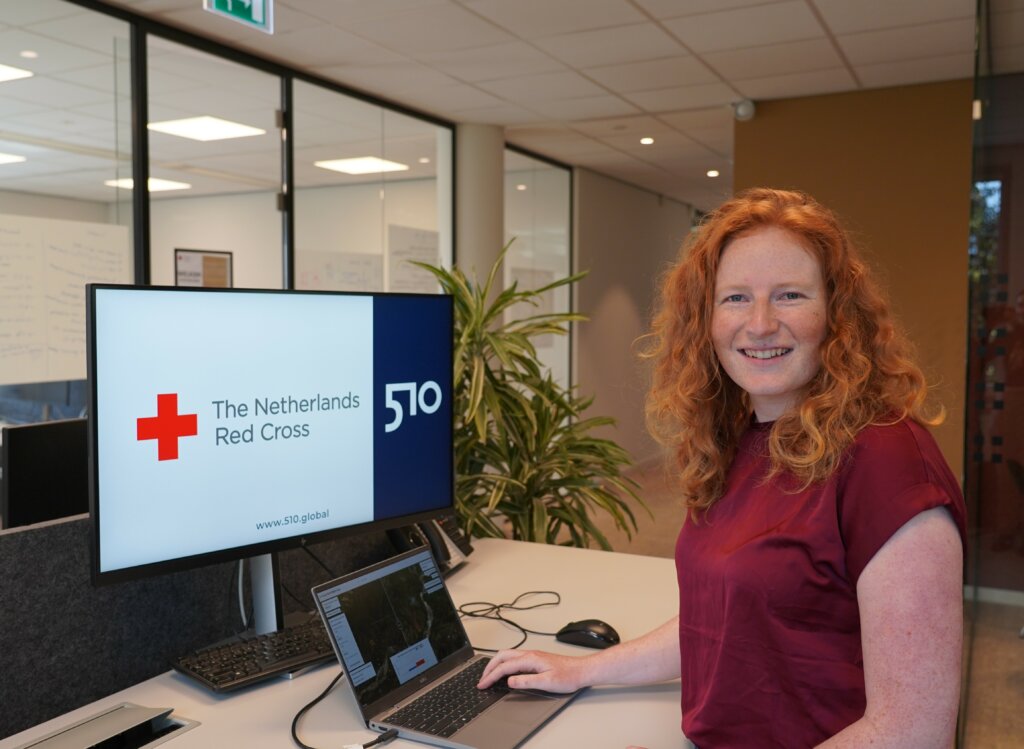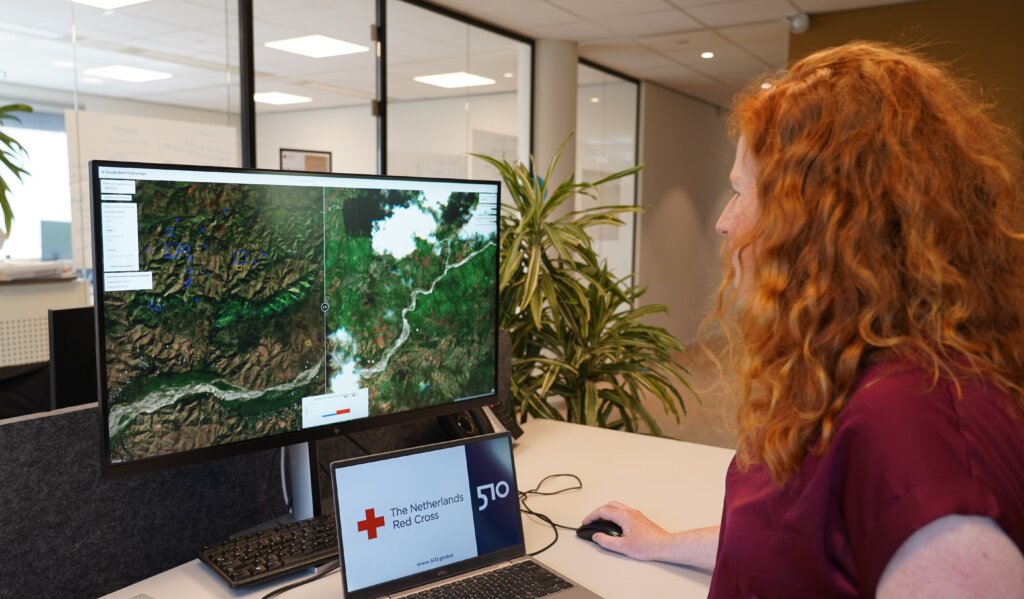In conversation with Mélanie Droogleever Fortuyn

At the Netherlands Red Cross’ data and digital team, 510, we believe that behind every innovative solution is a person whose skills, dedication, and vision make humanitarian action faster, smarter, and more inclusive. Our Humans of 510 series shines a light on these individuals: the journeys that brought them here and the real-world impact of their work. In this edition, we meet Agua y paisaje Technical Project Coordinator Mélanie Droogleever Fortuyn, whose engineering background and hands-on humanitarian experience have shaped her mission to make data-driven tools work for communities, where resilience starts with understanding the environment.
What first sparked your interest in humanitarian work or data?
I grew up living in six different countries, which sparked my interest in different cultures and international work from a young age. At university in Switzerland, I studied environmental engineering and started working with the Bangladesh Red Crescent Society on sanitation management in the Cox’s Bazar refugee camp. I used GPS data loggers to track barrels transporting waste in areas which are too dense for waste collection trucks. The goal was to optimize routes, so residents have access to clean sanitation, and to reduce the burden on volunteers carrying the waste. That experience showed me how data and engineering could contribute to humanitarian work, and ultimately led me to 510!
How do you collaborate with partners around the world?
As a National Society supporting others globally, our goal is capacity building. I enjoy traveling to meet our partner National Societies face-to-face. It helps build trust, so they feel comfortable asking questions. For example, I worked with the Cameroon Red Cross on an Early Action Protocol (EAP) to mitigate cholera outbreaks. The project ended in 2024, but I’m still in touch with their focal point to support decision-making. That kind of relationship-building is key, because the real impact happens when our partners use the tools we build. We work with cutting-edge technologies, especially for the humanitarian sector, and a strong handover ensures they can truly own and use them. At every step, partners should feel empowered to ask anything.
How do you see data and digital tools changing the humanitarian sector?
Imagine predicting a flood before a community even knows it’s coming. Or identifying which water points might fail during a drought, and warning affected communities. Or recommending reforestation areas in Haiti based on soil conditions. Or preventing a cholera outbreak from spreading after just one case. All this is possible with data. By using data, we’re shifting from reacting to disasters to actively preventing harm. Often, weather events are treated as isolated emergencies, which means no long-term solutions are implemented. For example, drought is often seen as an emergency by most actors, but not enough is being invested in rehabilitating water points to establish long-term water access. Working with nature means building resilience, not just responding when extreme weather becomes dangerous.

What challenges do you face when working with humanitarian data?
Access to data is a major challenge. Governments and companies often restrict sharing, which limits our ability to build accurate tools. But the Red Cross Red Crescent Movement has a unique advantage: our network of volunteers collects data at the community level. This allows us to tailor tools to real needs. Still, we struggle with the spatial and temporal granularity of global datasets. That’s why we start from the bottom up: we pilot tools locally where we have data, then we show impact to encourage broader data sharing. By proving the value of our tools with data derived from locally led action, we can get others on board.
If you could solve one problem with data tomorrow, what would it be?
Data alone doesn’t change anything: it’s the people using it who make the difference. Reliable, high-quality information enables evidence-based decisions, but too often data is collected just to make a report without any follow-up action. It’s important to collect data with a clear purpose. For example, if a National Society maps water points, what’s the goal? You need to collect data that supports decision making, based on tangible local needs. The data is not lacking, it’s more about making it as usable and actionable as possible for communities.
DESCARGO DE RESPONSABILIDAD: Please note that the Arabic, French and Spanish versions of this article were automatically generated using Artificial Intelligence. We cannot guarantee full accuracy of these versions.
Queremos conocer su opinión.
Are you interested in pursuing similar solutions with your National Society? Please reach out to
Service coordinator, Water & Landscape: Marijke Panis mpanis@redcross.nl
Coordinador de servicios, Acción Anticipatoria: Aklilu Teklesadik ateklesadik@redcross.nl